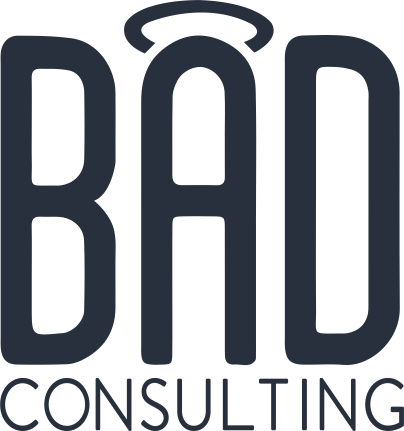There was an awful pit laying heavy in my stomach. My client just told me to start posting on another network, because I should be able to just copy and past content from Facebook. “It shouldn’t be a huge deal.” Except it was. This network wasn’t included in our contract. I didn’t have any available hours in their current contract to manage the network, because even if I did copy and paste as directed, that does take time. I would be giving away work for free. This was a very obvious case of scope creep.
Scope creep isn’t always as egregious as this. It could just be little things that add up over time and take significant time away from a consultant. And that means lots of money out of the consultant’s pocket. Especially in this economy, it can end up being the death of the consultant’s business. That is why you’ll see so many consultants draw a line and refuse to cross it. In most cases, that line already has some scope creep within it.
In the end, that creep is so bad for both the client and the consultant. Scope creep is often seen as the responsibility of the consultant to stop. But I argue, it should be on both the client and consultant to protect against it.
Why is scope creep bad for the client?
The most important thing to know about scope creep as a client is that it can erode the trust between the client and the consultant.
In the case of the client that emailed me to copy and paste, I immediately felt like they did not understand what I do or social media as a whole. So my first thought was to determine whether they needed more education or if I needed to move on from them. This was just from one email asking for free work. That’s how quickly my opinion of a client can change, and I am certainly not alone in this.
And there is also the idea of a consultant feeling forced into this. I once had a client threaten the account because I wasn’t willing to do extra free work they wanted. The second this happened, I started work to replace this income and eventually fired the client. In this economy, that is much tougher to do. So a client might feel like they can pull this kind of stunt with more favorable results. It might work in the short term, but you will effectively ruin your relationship with the consultant and they will be looking to get rid of you fast.
But this also puts the consultant in jeopardy of not being able to do the work. If the consultant’s time is continually taken up with scope creep and they can’t take on more clients because the amount of extra work is taking up their remaining hours, they are going to start looking for a way out. That is especially true if their clients don’t fully cover their bills. Their way out could be ending their business completely and going in-house somewhere so they can make more money. Or it could mean just firing you as a client so they can have a more profitable client.
Whatever happens, allowing for a lot of scope creep does mean that your relationship with the consultant will end prematurely. I have had to do it, and it can hurt to know that you’re letting go of a community. But when it comes down to profitability and longevity of my business, I have to choose that over a community I really want to continue to work with. And that’s the case with all consultants.
What is the alternative?
Your first step as a client is to come from a place of respect and understanding. Starting with the knowledge that any ask for free work could potentially affect your relationship as well as the consultant’s business is a good start to any kind of conversation that potentially will result in scope creep.
Next, expect that you will have to pay more for the work. Say something along the lines of, “Hey, I was wondering if you might be able to do X. If so, can you let me know what the added cost will be?” That simple ask honestly will make me consider whether I have the time in the current hours level before I start quoting a price. I’m not saying that I will do the work for free, but I will look at options that will come at no cost to my client. I am always flexible for clients who respect what I do for them.
What do you do if you don’t have the budget? Prioritize. Is there anything in your current contract that you can possibly take out to allow for something else? I would bring the consultant in as early as possible when you are prioritizing like this. They will likely have ideas of things they are doing that aren’t as successful or that could be brought back in-house. And they will likely have a better idea of how long the new work will take and what of the current work takes about that same amount of time.
Honestly, a lot of my advice for people who are working with consultants boils down to one thing: Respect your consultant as a partner. I have been in so many of these relationships where the client hasn’t done that. I have gotten myself out of those situations as quickly as possible. In many cases, that brought the client back to the beginning with social media. It’s painful for me to see that, but knowing that my client doesn’t respect me is even worse. And I’m sure every consultant would say the same thing.

